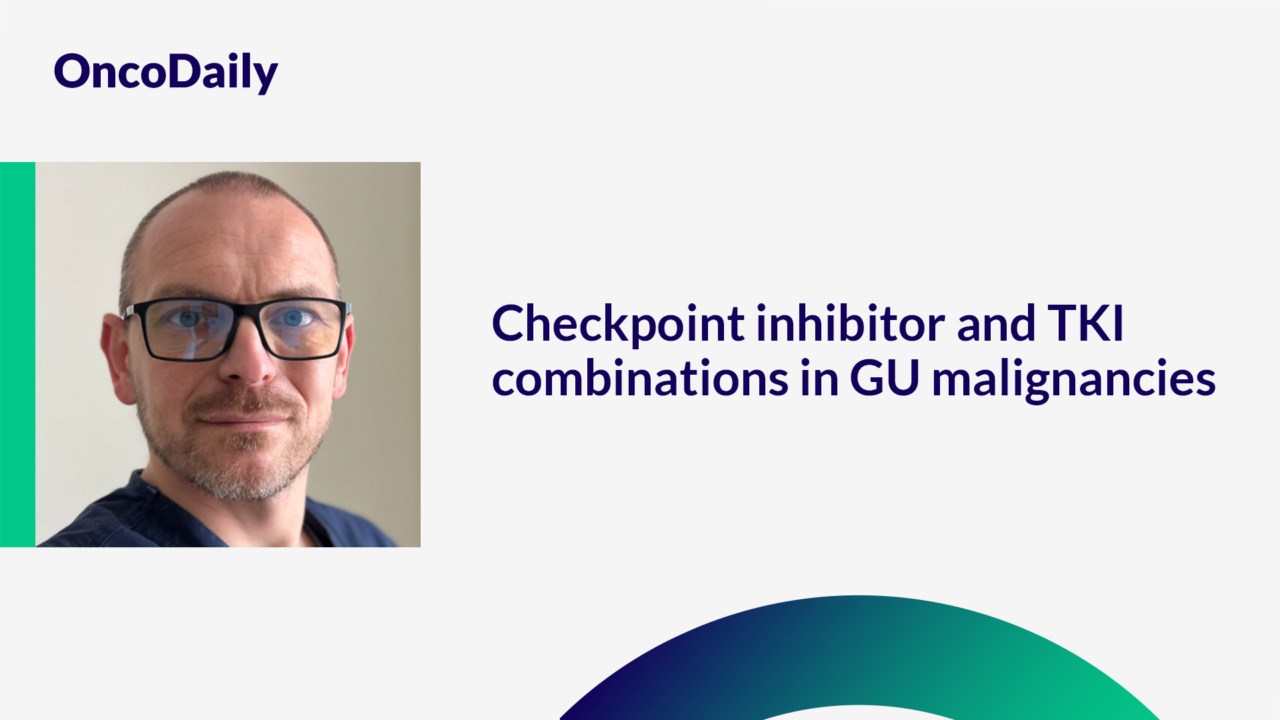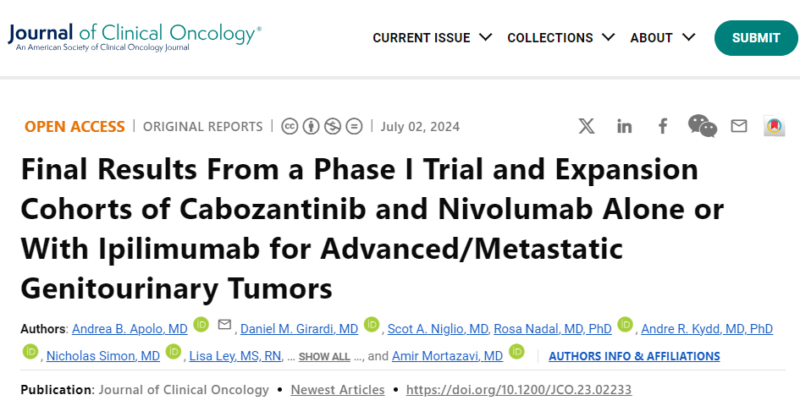
Piotr Wysocki: Checkpoint inhibitor and TKI combinations in GU malignancies
Piotr Wysocki recently posted on LinkedIn:
“A phase I study (Apolo AB et al. J Clin Oncol 2024) evaluated the safety, overall response rate (ORR), progression-free survival (PFS), and overall survival (OS) of cabozantinib and nivolumab (CaboNivo) alone or combined with ipilimumab (CaboNivoIpi) in patients with advanced genitourinary malignancies. The study included patients with metastatic urothelial carcinoma (mUC), metastatic renal cell carcinoma (mRCC), and rare genitourinary (GU) tumors.
CaboNivo doublet cohorts included patients with mUC, mRCC, and adenocarcinoma of the bladder/urachal. CaboNivoIpi triplet cohorts included patients with mUC, mRCC, penile cancer, and squamous cell carcinoma of the bladder and other rare GU tumors. A total of 120 patients were enrolled, with 64 receiving CaboNivo and 56 receiving CaboNivoIpi, with a median follow-up of 49.2 months.
The results were as follows:
- Overall Response Rate (ORR): 38%
- Complete Response Rate: 11%
- Median Duration of Response: 20 months
- ORR by cancer type:
– Metastatic Urothelial Carcinoma (mUC): 42.4%
– Metastatic Renal Cell Carcinoma (mRCC): 62.5%
– Squamous Cell Carcinoma of the Bladder: 85.7%
– Penile Cancer: 44.4%
– Renal Medullary Carcinoma: 50.0%
- Treatment-Related Adverse Events (Grade ≥ 3):
– CaboNivo patients: 84%
– CaboNivoIpi patients: 80%
The combination of nivolumab and cabozantinib is one of the most active regimens in patietns with advanced renal cell cancers, while combination of nivolumab and ipilimumab is characterized by most long-term benefits (OS, DOR).
This phase I study provides early signals that nivolumab+cabozantinib and nivolumab+ipilimumab+cabozantinib combinations seem to be very active regimens not only in RCC patietns but in patietns with various, even rare, genitourinary malignancies (except for germinal tumors).”
Authors: Andrea B. Apolo, Daniel M. Girardi, Scot A. Niglio, Rosa Nadal, Andre R. Kydd, Nicholas Simon, Lisa Ley, Lisa M. Cordes, Elias Chandran, Seth M. Steinberg, Sunmin Lee, Min-Jung Lee, Shraddha Rastogi, Nahoko Sato, Liang Cao, A. Rouf Banday, Salah Boudjadi, Maria J. Merino, Antoun Toubaji, Dilara Akbulut, Bernadette Redd, Hadi Bagheri, Rene Costello, Sandeep Gurram, Piyush K. Agarwal, Heather J. Chalfin, Vladimir Valera, Howard Streicher, John Joseph Wright, Elad Sharon, William D. Figg, Howard L. Parnes, James L. Gulley, Biren Saraiya, Sumanta K. Pal, David Quinn, Mark N. Stein, Primo N. Lara, Donald P. Bottaro and Amir Mortazavi.

Source: Piotr Wysocki/LinkedIn
Piotr Wysocki leads the Clinical Oncology Department at University Hospital and the Faculty of Oncology at Jagiellonian University-Medical College in Krakow, Poland. As an advisor to the Polish Ministry of Health, he shapes the national cancer strategy.
His clinical expertise spans the systemic treatment of breast, gynecologic, and genitourinary cancers, with a focus on developing innovative metronomic chemotherapy-based therapies for advanced cancer patients who have undergone prior treatment.
Read other posts by Piotr Wysocki published on OncoDaily.
